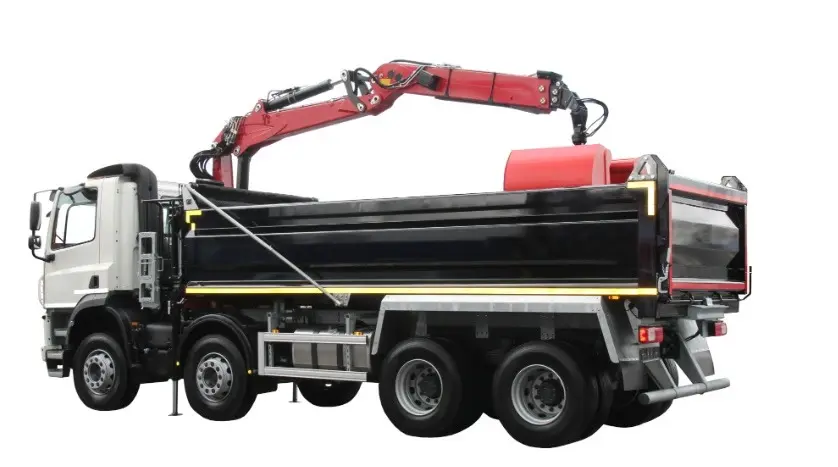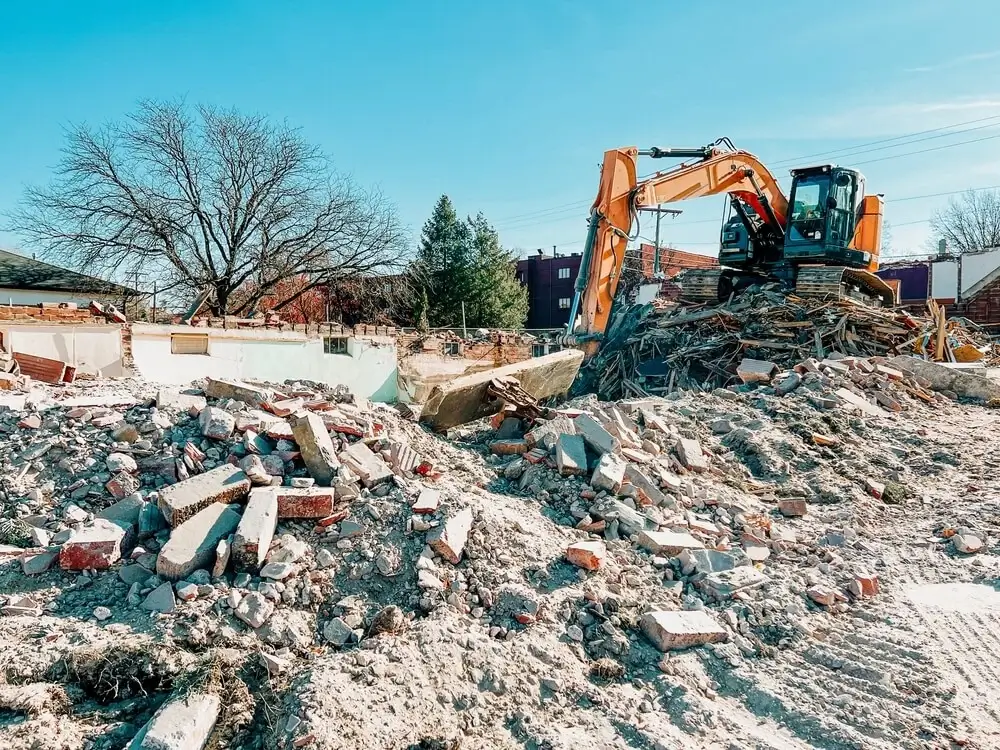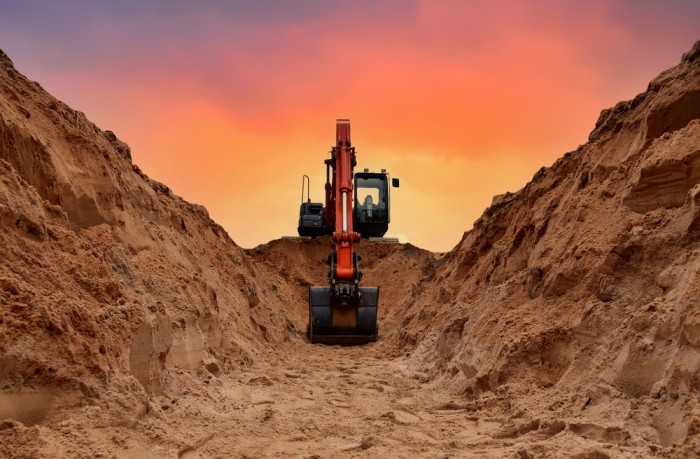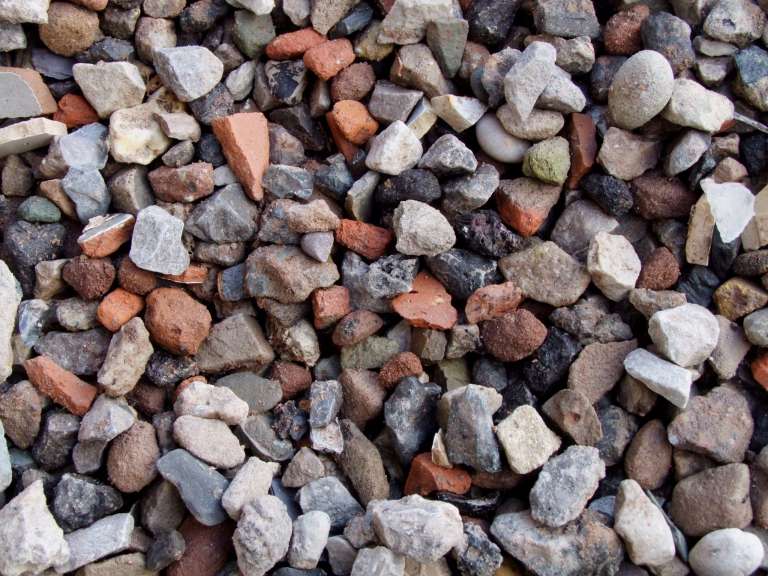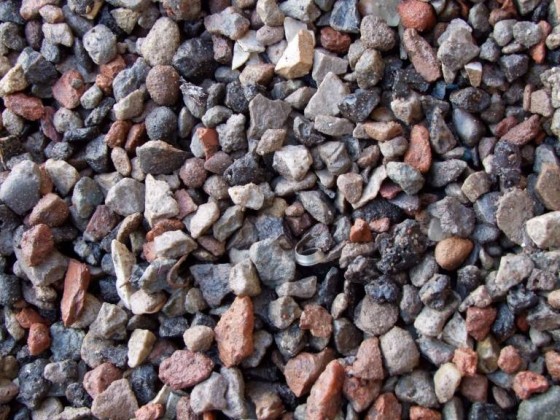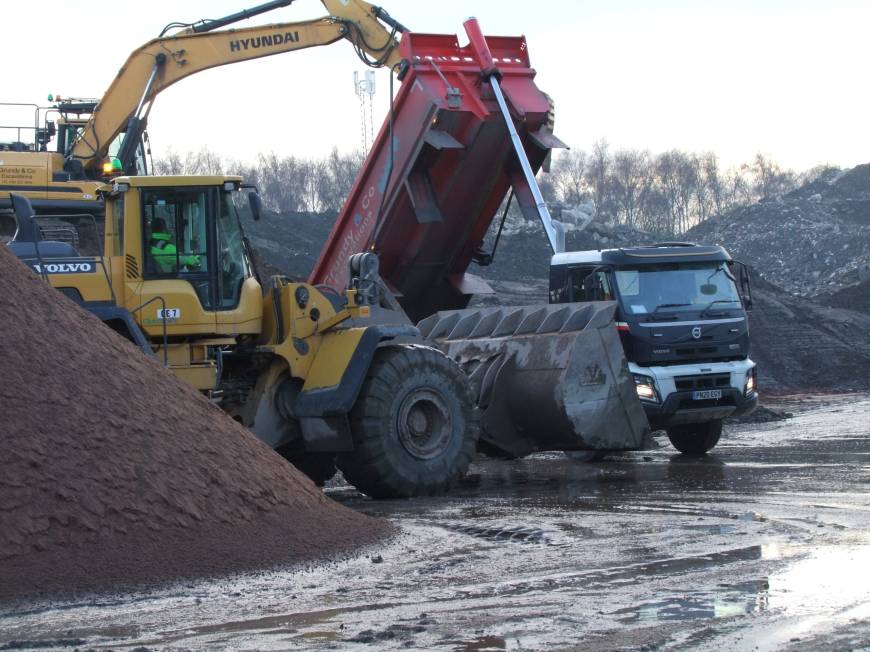Grundy & Co Excavations Ltd offers the construction industry a full range of WRAP-quality protocol recycled aggregates, washed sands, and soils.
All our raw materials are sourced from around Merseyside, predominantly in the Cheshire and Manchester areas, and all products are produced in-house at our fully licenced site in Widnes, Cheshire.
What recycled aggregates are available?
The team here at Grundy and Co. collects from demolition then sorts, washes, and manufactures a wide range of recycled building aggregates, which include:
- Coarse sand
- Crushed brick
- MOT Type 1
- Recycled aggregates
These aggregates are suitable for use in a wide range of industries and purposes, including:
- The construction sector, including more minor construction projects
- Horticulture, including landscape gardening
- DIY enthusiasts and home renovation companies
- And many more!
How are recycled aggregates made?
First, all raw materials are collected from demolition sites from across Merseyside, before being brought back to our reprocessing site.
Then, the raw materials are pre-sorted to ensure that no unwanted materials enter the recycling process.
Once sorted by size and waste products are removed, two main processes are used to re-utilise waste from the construction site, namely dry crushing, and washing.
Both systems produce high-quality recycled products that meet tight legal specifications for use by the Ministry of Transport and other government projects. To ensure this, all aggregates and sands are tested regularly, by an external, third-party testing house, so that you can be confident that the products you purchase will match your project’s requirements.
If you need more detailed information about products and their uses as primary aggregates, we have a dedicated Quantity Surveyor who can advise you and help support your project from the first day.
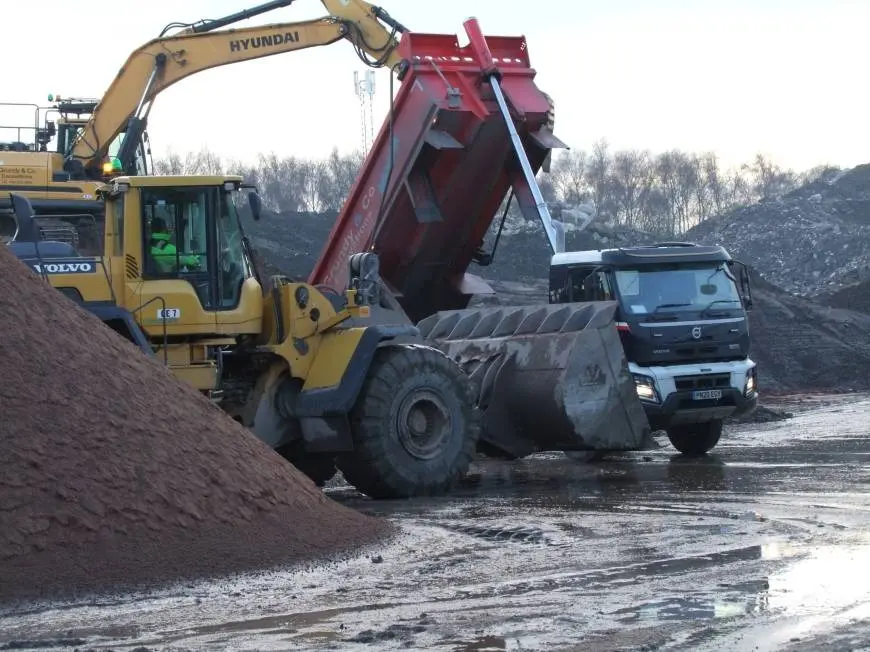
Why do we need to choose recycled materials instead of natural resources?
There is a wide range of benefits that come from reusing construction aggregates that would have been wasted.
But the most important reason we should is to help reduce the impact of construction aggregates on our natural world.
For decades, construction sites have sourced and used virgin materials to craft the built environment, but the carbon footprint and waste associated with this has taken its toll.
According to some studies, construction is responsible for up to 50% of climate change and also impacts waste and landfill usage, as well as causing air, water, and noise pollution.
The simplest solution is to turn to reprocessing materials and high-quality, recycled aggregates – which is something we can help you with.
Need our expertise?
Request a call back from our team today!


